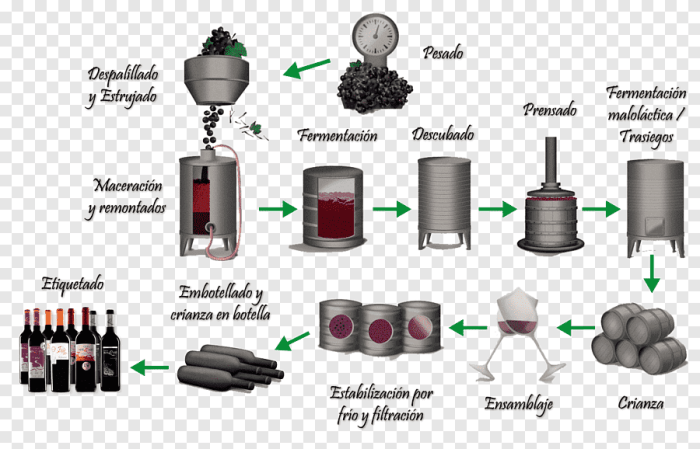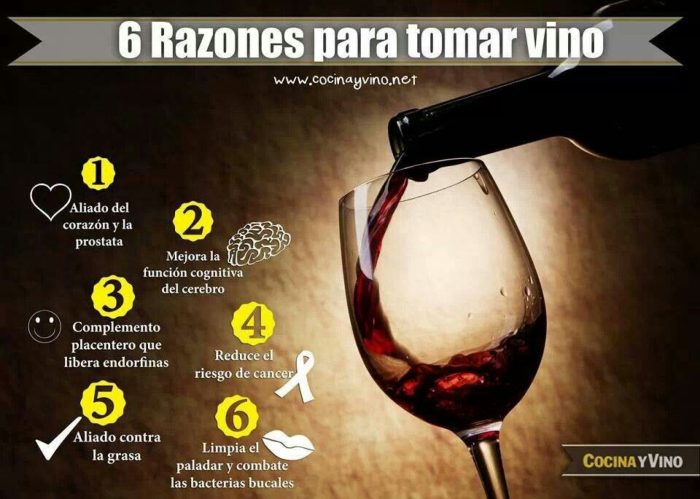Embark on a linguistic adventure as we delve into the intriguing phrase “Me compraste el vino tinto,” a Spanish expression that holds cultural depth and nuances. This phrase sets the stage for an exploration of Spanish culture, wine’s significance, and the emotional resonance it evokes.
Wine, a staple in Spanish tradition, has woven its way into social fabric and artistic expression. Its presence in this phrase hints at the cultural significance it carries, inviting us to uncover the layers of meaning it conveys.
Analyze the sentence

Let’s analyze the sentence: “Me compraste el vino tinto.” This Spanish sentence translates to “You bought me the red wine” in English. Let’s break down the sentence into its components and identify its grammatical structure and tense.
Subject
The subject of the sentence is “tú” (you), which is implied in the verb form “compraste.” The subject is the person or thing that performs the action of the verb.
Verb
The verb in the sentence is “compraste” (bought), which is in the past tense. The verb indicates the action that the subject performs.
Object
The object of the sentence is “el vino tinto” (the red wine), which is the thing that is being acted upon by the verb. The object receives the action of the verb.
Grammatical structure and tense
The sentence “Me compraste el vino tinto” is in the active voice, meaning that the subject is performing the action of the verb. The sentence is in the past tense, indicating that the action took place in the past.
Explore the cultural context of the sentence: Me Compraste El Vino Tinto

Wine holds a significant place in Spanish culture, deeply entwined with social customs and festivities. The act of buying someone wine carries both social and cultural implications.
Social implications
In Spain, offering wine to someone is a gesture of hospitality, friendship, and respect. It is common to share a glass of wine with friends, family, or colleagues to celebrate special occasions or simply to socialize. Wine is often seen as a way to connect with others and build relationships.
Cultural implications
Wine is deeply ingrained in Spanish history and tradition. The country has a long and rich winemaking heritage, with many regions producing world-renowned wines. Wine is not only a beverage but also a cultural symbol, representing the country’s history, terroir, and culinary traditions.
Examples of wine use in Spanish-speaking countries
- Celebrations:Wine is often served at celebrations such as weddings, birthdays, and religious festivals.
- Social gatherings:Wine is a staple at social gatherings, whether it’s a casual get-together or a formal dinner party.
- Gastronomy:Wine is an integral part of Spanish cuisine, often paired with traditional dishes like paella and tapas.
- Health:Wine is believed to have health benefits, such as reducing the risk of heart disease and certain types of cancer.
Identify the different ways to interpret the sentence

The sentence “Me compraste el vino tinto” can be interpreted in various ways depending on the context and tone of voice. Here are a few possible meanings and intentions behind the speaker’s words:
Expression of Gratitude
The speaker could be expressing gratitude for the purchase of red wine. This interpretation is likely if the speaker says the sentence with a warm and appreciative tone. For example, if a friend brings a bottle of red wine to a dinner party, the host might say, “Me compraste el vino tinto,” to thank them for the thoughtful gift.
Inquiry or Request
The speaker could also be inquiring about the purchase of red wine. This interpretation is likely if the speaker says the sentence with a questioning tone. For example, if someone is planning a party and needs to buy wine, they might ask a friend, “Me compraste el vino tinto?” to see if they can help with the purchase.
Expression of Disappointment
In some cases, the speaker could be expressing disappointment about the purchase of red wine. This interpretation is likely if the speaker says the sentence with a negative or sarcastic tone. For example, if someone buys a bottle of red wine that the speaker does not like, they might say, “Me compraste el vino tinto,” to express their displeasure.
I remember that time you bought me that red wine. It was delicious! By the way, if you’re interested in expanding your vocabulary, I recommend checking out vocabulary level f unit 3 . It’s a great resource for learning new words.
Anyway, back to that wine…
Analyze the emotional impact of the sentence

The sentence “Me compraste el vino tinto” (You bought me the red wine) can evoke a range of emotions in the listener, depending on the context and tone in which it is spoken.
If spoken with gratitude, the sentence can express appreciation and warmth. The speaker may feel touched that the listener remembered their preference for red wine and went out of their way to purchase it for them. This interpretation is reinforced by the use of the personal pronoun “me,” which creates a sense of intimacy and connection between the speaker and the listener.
Expression of Disappointment
Conversely, if spoken with disappointment, the sentence can convey a sense of frustration or dissatisfaction. The speaker may have been expecting a different type of wine, or they may feel that the listener did not put enough thought into their gift.
This interpretation is supported by the use of the definite article “el,” which emphasizes the specific wine that was purchased. The speaker may also use a sarcastic or ironic tone to further express their disappointment.
Expression of Surprise
In some cases, the sentence may also be used to express surprise or astonishment. The speaker may not have expected the listener to purchase red wine for them, or they may be surprised by the listener’s generosity. This interpretation is often accompanied by a raised eyebrow or a wide-eyed expression.
Overall, the emotional impact of the sentence “Me compraste el vino tinto” is highly dependent on the context and tone in which it is spoken. The choice of words and the sentence structure contribute to the emotional impact by creating a sense of intimacy, disappointment, or surprise.
Compare the sentence to similar expressions in other languages

The Spanish sentence “Me compraste el vino tinto” can be directly translated to “You bought me the red wine” in English. However, there are similar expressions in other languages that convey a similar meaning but have subtle cultural and linguistic differences.
French
- “Tu m’as acheté le vin rouge” – This French expression has a similar structure to the Spanish sentence, with the verb “acheter” (to buy) followed by the direct object “le vin rouge” (the red wine) and the indirect object “me” (me).
- “Tu me l’as acheté” – This is a more informal way of saying the same thing in French, with the pronoun “le” (it) referring to the wine.
Italian, Me compraste el vino tinto
- “Mi hai comprato il vino rosso” – This Italian expression follows a similar structure to the Spanish sentence, with the verb “comprare” (to buy) followed by the direct object “il vino rosso” (the red wine) and the indirect object “mi” (me).
- “Me l’hai comprato” – This is a more informal way of saying the same thing in Italian, with the pronoun “lo” (it) referring to the wine.
German
- “Du hast mir den Rotwein gekauft” – This German expression has a slightly different structure than the Spanish sentence, with the verb “kaufen” (to buy) followed by the indirect object “mir” (me) and the direct object “den Rotwein” (the red wine).
- “Du hast ihn mir gekauft” – This is a more informal way of saying the same thing in German, with the pronoun “ihn” (it) referring to the wine.
Cultural and Linguistic Differences
The different ways of expressing the same idea in different languages reflect cultural and linguistic differences. In Spanish, the indirect object pronoun is placed before the direct object pronoun, while in French, Italian, and German, the indirect object pronoun is placed after the direct object pronoun.
Additionally, in Spanish, the definite article is used before the noun (el vino tinto), while in French, Italian, and German, the definite article is not used before the noun (le vin rouge, il vino rosso, den Rotwein).
Unique Characteristics of Spanish
The Spanish sentence “Me compraste el vino tinto” exemplifies the unique characteristics of the Spanish language, including the use of indirect object pronouns and the placement of the definite article before the noun. These features contribute to the richness and expressiveness of the Spanish language.
Common Queries
What is the literal translation of “Me compraste el vino tinto”?
You bought me the red wine.
What cultural implications are associated with buying someone wine in Spanish culture?
It can symbolize friendship, gratitude, or a desire to share a special moment.
